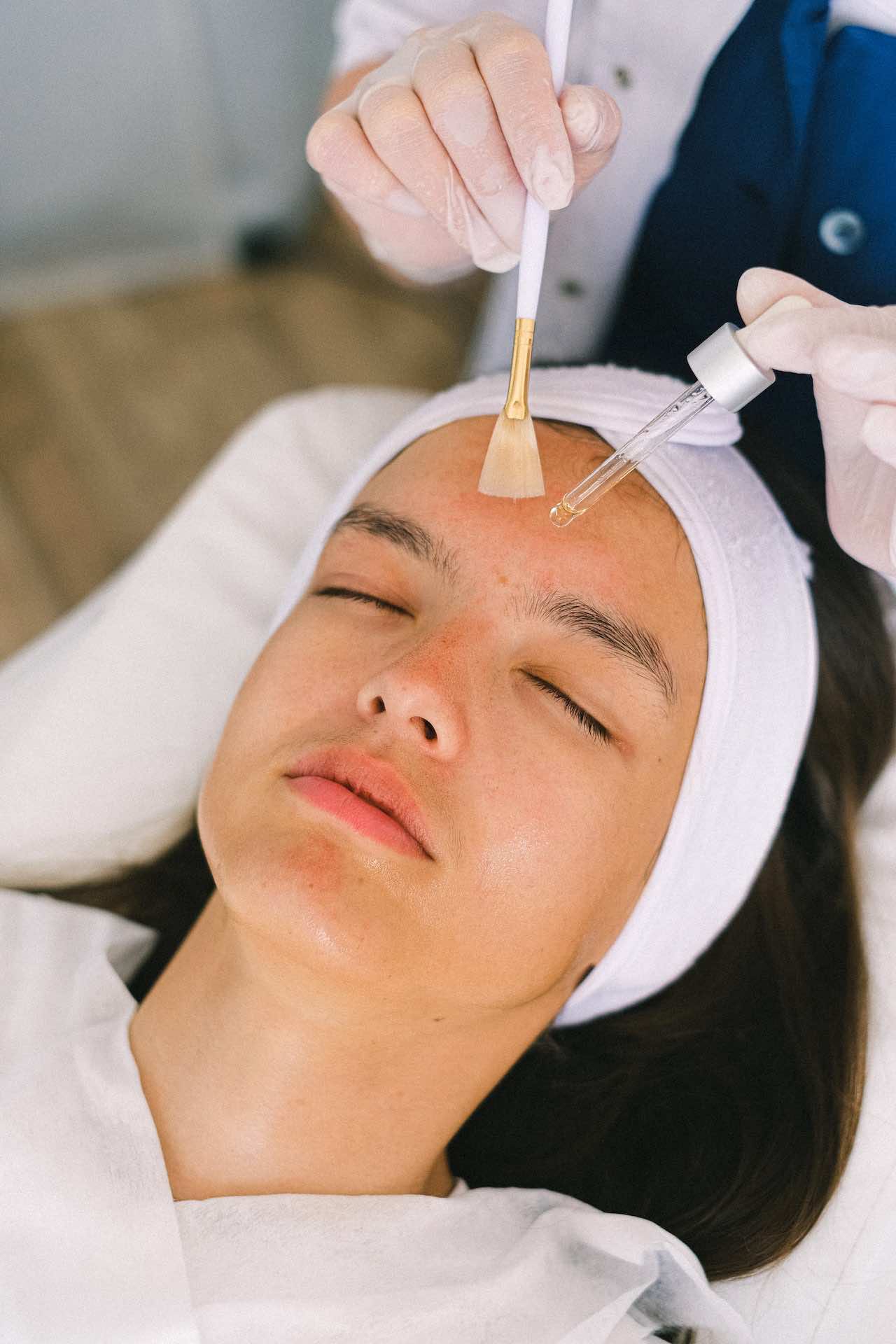Between work, family members, hobbies, friends, and all of your responsibilities, we understand that it can be challenging to find the time to focus on your skin’s health and wellness. Plus, when you’re in the skincare department, it’s straightforward to get confused by the many products on the shelves. Which products do you need, and which ones can you skip? This month, we’re sharing three essential products that should remain in everyone’s basic skin care regimen.
As a bonus, we’ve added two additional products that you should add if you’re concerned about skin aging. Keep reading to learn about developing a basic yet effective skin care regimen.
Step 1: Cleanser
Choosing a cleanser specifically designed for the face (rather than the body) is the first important step in a basic skin care regimen. But how to choose the most effective one?
Some products designed for people with acne or oily skin have balls or other particles to cleanse the skin, but exfoliating twice a day is more than anyone needs. Harsh facial cleansers can irritate and exacerbate acne in many people. If your skin is acne prone, look for products that are non-comedogenic, which means they don’t contain pore-clogging ingredients.
For most people, a mild formula is best. Those with susceptible skin should use cleansers free of dyes, fragrances, and alcohol to minimize inflammation. If your skin is dehydrated, use an oil-based cream or cleanser rather than a foaming formula. Cleansing removes makeup, dust, oil, and sweat without depriving the skin of beneficial microorganisms and essential moisture.
Step 2: Moisturizer
After cleansing your skin, apply a moisturizer even if you feel that your skin is tight or dry. When you use a face cream, you assist in maintaining your skin’s natural moisture barrier, which protects it from infections and irritation. Tip: Moisturizer works best when you use it to damp skin, so apply immediately after cleansing.
It’s a common misconception that people with oily skin don’t need moisturizer. In truth, using a non-comedogenic moisturizer can help reduce natural sebum production. If you pass this step, your skin will overproduce oil to maintain its moisture barrier.
Choosing a moisturizer that works great on your skin can take a few attempts, but there are a few guidelines to help you find the perfect cream:
If your skin is dry, you may like a richer formula, so look for products with the word “lotion” in them.
Choose lighter creams for both the daytime and summer seasons.
Choose fatter foods for the nighttime as well as for the winter season.
Just like your face, you can keep it clean and also avoid products with a list of unique cleanser ingredients. The more this moisturizer contains, the more likely it is that something in it will irritate the skin or cause breakouts. If you’re having difficulty finding the perfect moisturizer, contact us. We are happy to make a personal offer!
Step 3: Sunscreen
Sunscreen is the third and final step in the standard of reliable skin care. Skin cancer is the most often diagnosed type in the United States, with more brand-new cases each year than all other types of cancer combined.
The more direct sunlight that hits your skin, the higher your risk of skin cancer, but it’s not just long days at the beach that pose a threat to you. Every time you walk your dog, walk to your cars, trucks, and grocery stores, or sit in front of your window at home, you are directly exposed to UV radiation in your life, which increases your risk of developing cancer. Using sunscreen daily, whether outside or not, is a great way to reduce your chances of developing skin cancer.
In addition to preventing skin cancer, sunscreen can further prevent premature aging. UVA rays from the sun do not cause sunburn. However, they penetrate deep into the skin causing fine lines and wrinkles. If you want to keep your skin smooth and youthful for as long as you can, then a broad-spectrum sunscreen (UV-A and UV-B protection) with an SPF of 30 or higher might be the best anti-aging product you can use.
Taking it to the next level: antioxidants plus retinoids
If you’ve mastered the first 3 steps and want to add one or two more anti-aging products, consider including an antioxidant effect, retinoids, or both.
Vitamin C is an antioxidant and a common anti-aging ingredient because it reduces free radical damage that can lead to premature aging if left unattended. It further brightens and evens out skin tone. Look for a formula that also contains Vitamin E and Ferulic Acid, as the blend takes full advantage of the benefits of Vitamin C.
Remember that vitamin C oxidizes quickly in air and light, so serums in a pump container will last longer than the same in a glass dropper jar.
Retinoids like Retin-A (or its generic tretinoin) are the golden requirement in anti-aging skin care products. A prescription retinoid will assist in reducing fine lines and wrinkles, preventing hormone surges, and reducing skin discoloration.
Retinoids destroy collagen, increasing the density and elasticity of the skin. They do this by speeding up cell turnover, encouraging the skin to generate new collagen-filled cells more quickly. Retinoid products make your skin more sensitive to UV radiation, so it’s recommended to use them in the evening and apply sunscreen during the day.
Using both vitamin C and prescription retinoids will boost your anti-aging routine. We recommend using a vitamin C lotion early in the morning and a retinoid at night. It’s best to use them separately because they have different ideal pH levels, so using them together will reduce the effectiveness of both.
Taking care of your skin is as easy as using a cleanser, moisturizer, and sunscreen. While there are a million products to choose from, please keep it simple, and your skin will thank you. Please get in touch with us if you need personalized advice on your regular skincare routine or want to enhance it with an antioxidant serum or prescription retinoid. We’d love to help you develop a tremendous basic skin care regimen.




